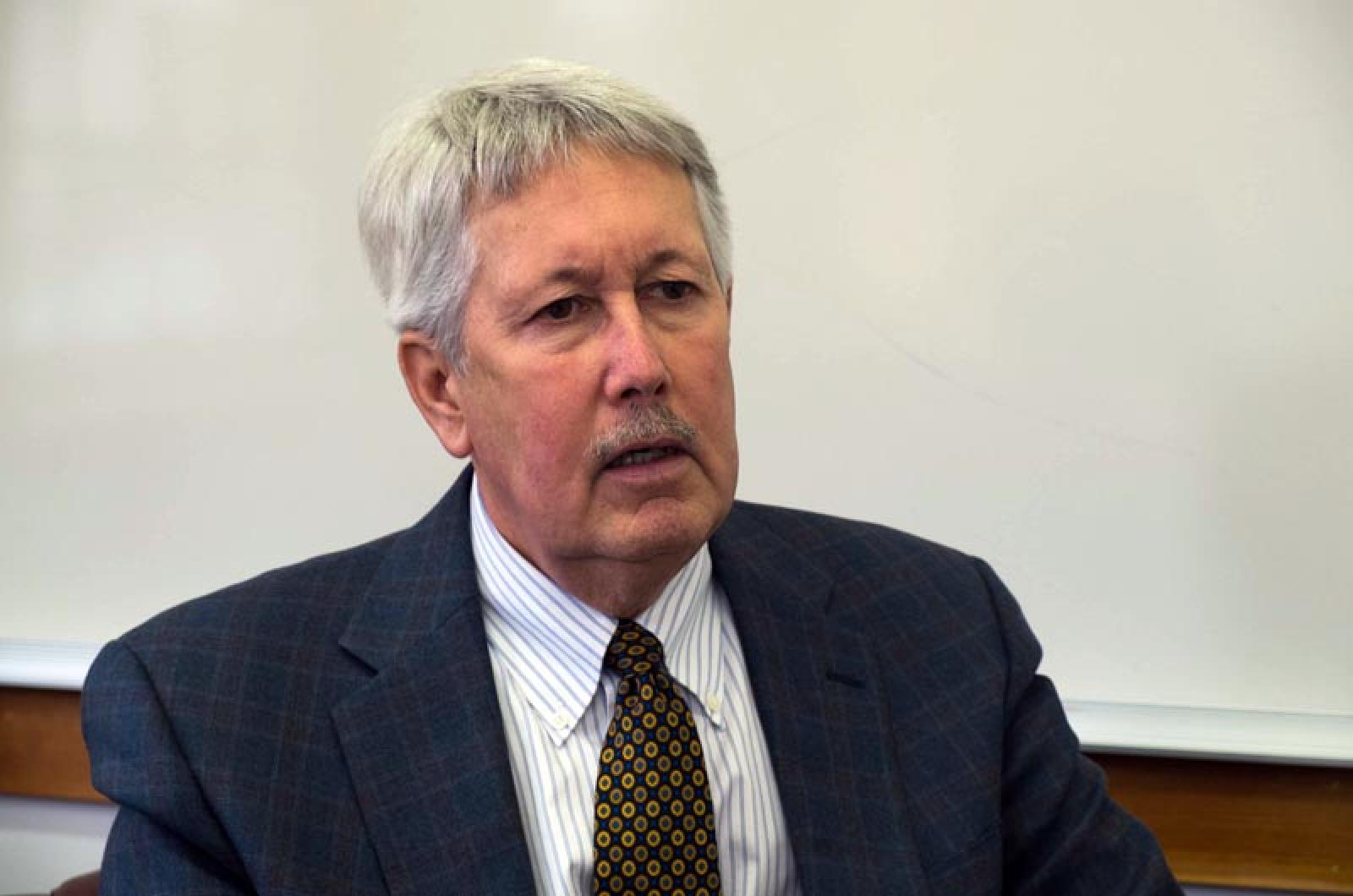Amid unprecedented growth in the cost of special needs education in a year of heightened taxpayer scrutiny, the Island public schools have welcomed a new director of student support services this winter.
Philip E. Campbell, former director of pupil services in the Auburn schools who has been on the job for a little more than two months, spoke to the Gazette this week about his experience and plan of attack as he comes into a program in a state of flux.
Mr. Campbell takes the helm following a long transitional period in his department. Dan Seklecki, the former special education director, retired in summer of 2012 after 30 years on the job. Interim director Donna Lowell-Bettencourt was appointed West Tisbury school principal last summer. Throughout the summer and fall, two retired educators filled the duties of the position before Mr. Campbell joined the staff in November.
Originally from Chelmsford, he attended the University of Massachusetts at Amherst in the late 1960s and early 1970s. He said he chose teaching because at a time of social upheaval he felt it was a field in which he could make a difference.
He later earned a master’s degree in educational leadership at Worcester State University and has worked in a number of positions state and nationwide, in private and public sectors.
Prior to beginning work in Auburn schools in 2011, Mr. Campbell served for three years as executive director of the National Children’s Center in Washington, D.C., an organization serving children with developmental disabilities. He has also worked in 10 other educational leadership capacities.
This breadth of experience was a cause for both praise and concern among school committee members when reviewing his resume last fall.
Some noted the relatively short tenure he had held in previous positions.
Mr. Campbell said it’s a reasonable criticism, but he also said the pattern wasn’t intentional. Over the years, he moved around for financial and family reasons, and was often recruited to various positions.
“That is not my intention in taking this position, however,” he said.
Mr. Campbell says he plans to stay and has already begun to devise a plan to improve services for students both inside and outside the special needs program.
His title, director of student support services, doesn’t restrict him to working with students with special needs, he said, a fact that he appreciates.
“In talking to Dr. Weiss [superintendent of schools James Weiss], I believe he clearly wants my role to be beyond students who are special education-eligible,” he said.
Islandwide, there are 450 students who receive specialized services under an individualized education program, and many more receive classroom accommodations under the federal legislation, Section 504.
Mr. Campbell said special education costs have risen significantly in recent years both statewide and nationally, but the sharp rise seen here on the Vineyard is due in part to the fact that Island schools have created their own programming for students with special needs instead of placing those students out of the district. Transportation off-Island is difficult for students who would otherwise be placed in day programs on the Cape.
In addition, the Island’s high expectations for the quality of programs offered to students with learning challenges have led to greater costs, he said.
“That is a standard that is higher than the law actually requires,” he said. “The faculty members here and the administration here have taken the course to say, if we think a student can benefit from it, we would like to do it for them.”
While he shares this philosophy, he’d like to pursue a budget that takes all stakeholders into consideration.
“The challenge is to balance that against the impact on the taxpayers as a whole and the students who are not benefiting from the special needs programming,” he said.
In the fall, during a discussion of a $1 million increase to the superintendent’s shared services budget, the all-Island school committee asked Mr. Campbell to look at the special needs programming with an eye toward finding economies.
“It’s still very much within my plan to have a fresh set of eyes to look at the programming,” he said of the request to evaluate strengths and weaknesses in the services offered.
He drafted an entry plan, currently under review by top school administrators, which outlines a series of structured interviews with stakeholders that include parents, students and community agencies, as well as Island educators and administrators.
“My plan is to use the time between now and the end of the school year really as a data collection period,” he said.
At a preliminary meeting last week of an Island parent advisory council made up of parents of special needs students, concerns were voiced about the lack of programming available to students whose age disqualifies them from programs at the high school.
This and other transitions will also be a subject of investigation for Mr. Campbell. But he said because adult services are not an entitlement, program availability is entirely dependent on resources.
He’s got his work cut out for him, yet appears unfazed.
“I’m glad to be here,” he said.







Comments
Comment policy »